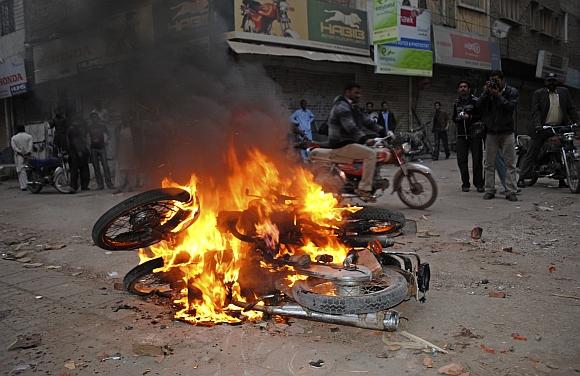
Over the last few years, Pakistan has become a very unusual place. A shroud of anxiety hangs thick over India's western neighbour, with which India shares a 'sometimes-hot, sometimes-cold' relationship. It is not only the country's trouble-weary civilians who are overwhelmed by the uncertainty over the ongoing events; even its lawmakers are characteristically, or rather uncharacteristically, worried.
Events of the past 10 days have literally thrown the world's spotlight over Pakistan -- be it the January 6 Line of Control attack in Jammu and Kashmir which has deepened the tensions between the two countries to the point of a near-crisis situation; and the series of blasts that killed well over 120 people in two cities of the restive provinces of Balochistan and Khyber-Pakhtunkhwa which prompted the dismissal of the government in that region.
Add to that the ongoing sectarian violence in the region, which has claimed hundreds of lives in the last year alone, and the constant American drone strikes inside Pakistan which has met with strong opposition from all quarters.
Then there is a certain Dr Muhammad Tahir-ul Qadri, a firebrand Canada-returned cleric who threatens to uproot the government in Pakistan with his pro-military stand and the support of thousands. The latest is the Supreme Court ordering Prime Minister Raja Parvez Ashraf's arrest in a corruption.
It is understandable that the people of Pakistan are bracing for more trouble coming their way and must be wondering -- things were never this bad before.
Rediff.com takes a look at some of these incredible events that have shook Pakistan over the last few days.
...
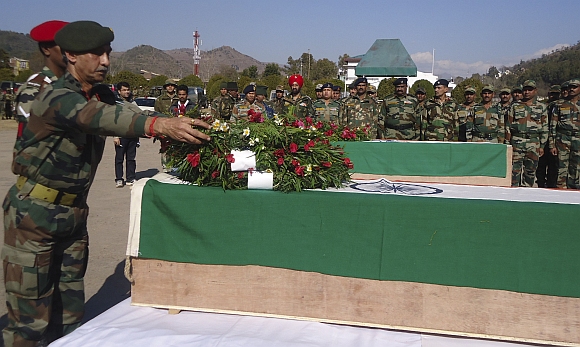
The recent killing of two Indian Army soldiers in Poonch sector across the Line of Control and subsequent decapitation of one of the bodies and Pakistan's vehement denial over the incident has of course, raised the temperatures in both the countries.
Skirmishes across the LoC are nothing new and have been going on for a number of years, but the latest incidents were not ordinary.
The incident saw all opposition parties joining hands in strong criticism of the incident. It even prompted Prime Minister Dr Manmohan Singh to break his silence and publicly say, "After this barbaric act there cannot be business as usual (with Pakistan)."

As many as 122 lives were lost in one of Pakistan's bloodiest days in recent times with a series of explosions rattling two cities of the restive provinces of Balochistan and Khyber-Pakhtunkhwa on January 10, one of them a major sectarian attack by a banned outfit.
Several security personnel and mediapersons were also killed on a bloody day which served as a grim reminder of the serious challenges being faced by the country from militants, religious extremists and separatists ahead of the upcoming general election.
As a result, the Pakistan government was forced to impose governor's rule in Baluchistan.
...
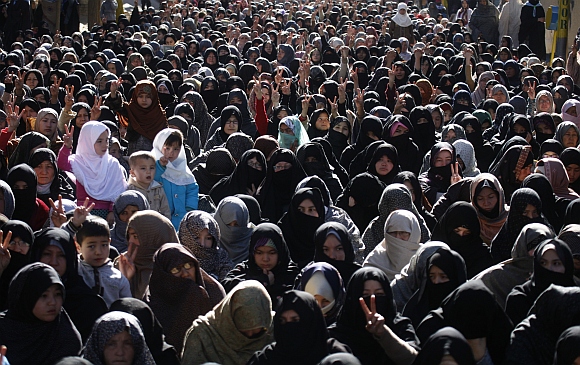
Violence against Pakistani Shia Muslims is rising and some communities are living in a state of siege. The roughly 500,000-strong Shia Hazara community in Quetta are routinely hunted by extremist groups because their ethnically distinct features make them an easy target.
Eighty-two people were killed and 121 wounded in Quetta last year when a suicide bomber targetTed a snooker club and a car bomb blew up nearby 10 minutes later. Nine police and 20 rescue workers were among those killed in the second blast.
The Taliban insurgency in the northwest has launched a string of attacks in recent weeks, including a suicide attack on Peshawar airport, the kidnap and execution of 21 paramilitary forces and a suicide attack killing a leading politician.
...
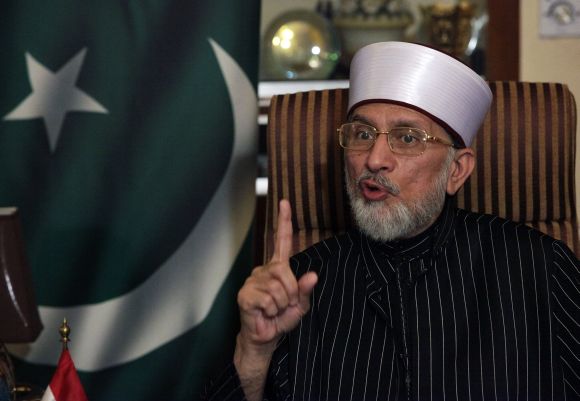
Dr Muhammad Tahirul Qadri, a Canada-returned cleric has threatened to uproot the government in Pakistan with his pro-military stand and support of thousands.
With a slogan of 'save the state, not the politics', Dr Qadri entered Islamabad on Monday night and proclaimed 'his march has ended and revolution has begun'.
The Qadri march has taken place at a time when the general elections are looming. He accuses the Pakistani government of being corrupt and incompetent, and says polls cannot be held until reforms are enacted.
The two major political parties of the country, Pakistan People's Party and Pakistan Muslim League-Nawaz, have called his charter of demands undemocratic and an effort to sabotage the general elections.
...
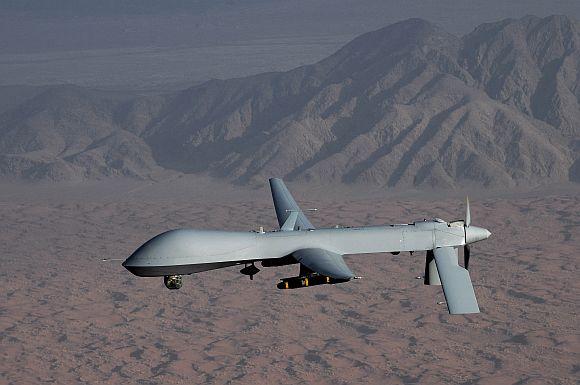
Islamabad has always protested against the drone strikes by the US administration but America has not paid any heed to its demands.
At a time when Washington and Islamabad are trying to negotiate a workable relationship once again, the drone strikes have received a momentum in the tribal areas of Pakistan.
During 2012, 38 drone strikes took place at different parts of the tribal areas and have killed 269 people so far, according to a report. On December 1, a drone strike reportedly killed Abdul Rehman Azman, a Yemeni national who was close to Al Qaeda's slain chief Osama Bin Laden.
Islamabad has condemned the drone strikes at different forums but the US is not ready to stop saying these strikes are 'necessary to battle terrorists that Pakistan has been unable or unwilling to control'.
In October, cricketer-turned-politician Imran Khan, who is one of the strongest opponents of the drone strikes, took a peace rally to south Waziristan border. Khan criticised both the Pakistan government and the US for the drone strikes, and said that majority of the victims were innocent tribesmen.
...
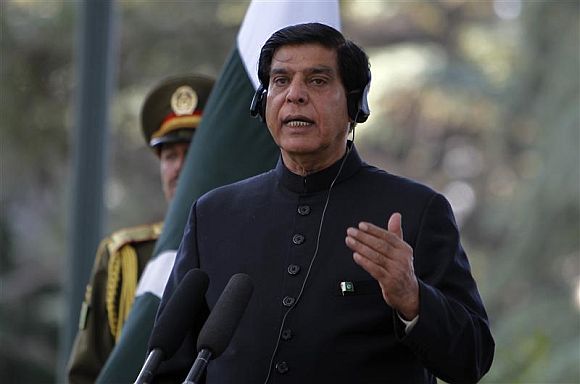
Plunging the nation into possible political chaos, The Pakistan Supreme Court issued an order seeking the arrest of Prime Minister Raja Pervez Ashraf in a $5 billion graft case and asked him to be produced before the court.
Ashraf had earned the nickname of 'Raja Rental' for allegedly receiving kickbacks for rental power projects when he was in charge of the ministry of power and water.
However, sources in the government have said that the National Accountability Bureau was unlikely to take any immediate action to arrest 62-year-old Ashraf. Though media reports had quoted the supreme court bench as saying that Ashraf and the other suspects should be arrested in 24 hours, the written order issued by the bench set no deadline for the arrests.
The graft charges over the power projects date back to Ashraf's tenure as Power Minister, when contracts were signed for several rental power projects as part of the Pakistan People's Party-led government's strategy to overcome a crippling energy shortage.
Though Ashraf was dropped during a cabinet reshuffle in 2011, he remained close to Zardari. The apex court began investigating the rental power plants in 2009, following a complaint of corruption from PML-Q parliamentarian Makhdoom Faisal Saleh Hayat.
...